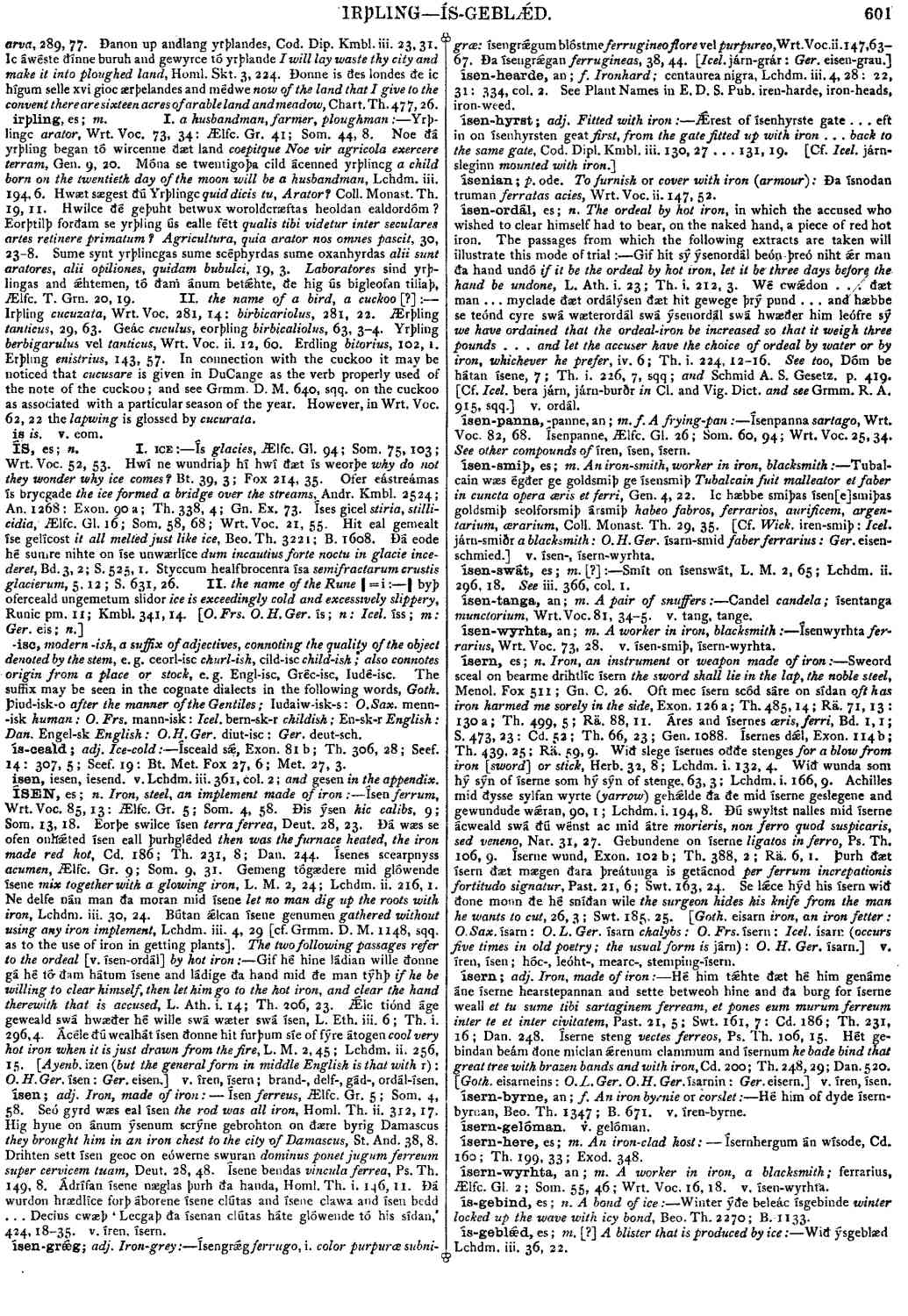ÍS
- noun [ neuter ]
-
Ís
glacies,
- Ælfc. Gl. 94 ;
- Som. 75, 103 ;
- Wrt. Voc. 52, 53 .
-
Hwí ne wundriaþ hí hwí ðæt ís weorþe
why do not they wonder why ice comes?
- Bt. 39, 3 ;
- Fox 214, 35.
-
Ofer eástreámas ís brycgade
the ice formed a bridge over the streams,
- Andr. Kmbl. 2524 ;
- An. 1268 :
- Exon. 90 a ;
- Th. 338, 4 ;
- Gn. Ex. 73 .
-
Íses gicel
stiria, stillicidia,
- Ælfc. Gl. 16 ;
- Som, 58, 68 ;
- Wrt. Voc. 21, 55 .
-
Hit eal gemealt íse gelícost
it all melted just like ice,
- Beo. Th. 3221 ;
- B. 1608 .
-
Ðá eode hé sumre nihte on íse unwærlíce
dum incautius forte noctu in glacie incederet,
- Bd. 3, 2 ;
- S. 525, 1 .
-
Styccum healfbrocenra ísa
semifractarum crustis glacierum,
- 5, 12 ;
- S. 631, 26 .
-
ᛁ byþ oferceald ungemetum slidor
ice is exceedingly cold and excessively slippery,
- Runic pm. 11 ;
- Kmbl. 341, 14 .
Bosworth, Joseph. “ÍS.” In An Anglo-Saxon Dictionary Online, edited by Thomas Northcote Toller, Christ Sean, and Ondřej Tichy. Prague: Faculty of Arts, Charles University, 2014. https://bosworthtoller.com/20801.
Checked: 1